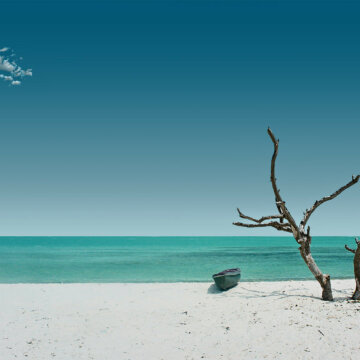- About
- Topics
- Picks
- Audio
- Story
- In-Depth
- Opinion
- News
- Donate
-
Signup for our newsletterOur Editors' Best Picks.Send
Read, Debate: Engage.
| topic: | Indigenous people |
|---|---|
| located: | India |
| editor: | Tish Sanghera |
With its white sand beaches and aquamarine waters, the Lakshadweep islands located off India’s western coast are some of the most pristine in the Arabian Sea. For centuries, its local population has lived amidst its coconut palms and coral reefs, enjoying an abundance of marine diversity.
This idyll is currently under threat from a controversial new land development bill, spearheaded by the island’s BJP-led administration. The new bill allows for indiscriminate mining and extraction of the island’s natural resources, as well as sweeping powers to take over land without people’s consent. It is apparently up to the island’s administration to determine if any compensation needs to be paid.
In its defence, the administration says the bill will boost the economy, lift islanders out of unemployment and attract tourist dollars with new resorts rivalling those in the nearby Maldives. But while a boost to the island’s sub-par infrastructure and household income is welcome, the local population say the policies are driven by corporate greed and ignore their interests.
A “Save Lakshadweep” campaign is currently in full swing after many islanders have been displaced from their homes and concerns arose that the ecologically fragile territory is set to be destroyed. Recently, inhabitants embarked on a 12-hour hunger strike in protest against the draconian laws, hoping to draw attention to their suffering.
The plans to transform Lakshadweep are similar to previous “development” pushes by the state, whereby private companies and land seizures have sidelined local demands. Indeed, India has a poor record of protecting land rights and claims of indigenous populations. Development projects have displaced an estimated 50 million people in India, amounting to what can be called an ‘internal colonisation’.
Lakshadweep’s residents, 97 percent of whom are Muslim, appear to be suffering further discrimination at the hands of the BJP-led administrations’ Hindutva-tinged policies. Earlier this year the administration banned the sale and slaughter of beef (cows are sacred to Hindus) under a ‘Prevention of Anti-Social Activities Act’. It also lifted a longstanding ban on alcohol. Critics say both moves have attacked the core identity of the largely Muslim population.
Many have also asked why the development bill is being pushed during the pandemic. Under the guise of “covid-19 restrictions”, activists and lawyers have not been granted permits to visit the island. This has prevented them from speaking with the local population and mobilising against the reforms, raising suspicion.
Calls to replace Lakshadweep’s administrator, Praful Patel, and his “authoritarian” measures are growing. Patel’s former role as home minister for Gujarat and Daman & Diu, another island territory, saw him oversee the mass eviction of indigenous communities and crush protests against similar development plans with force. Unfortunately for Lakshadweep, then, this could be just the beginning of a familiar pattern of events led by a Modi government favourite.
Image: beetle_0042000.

